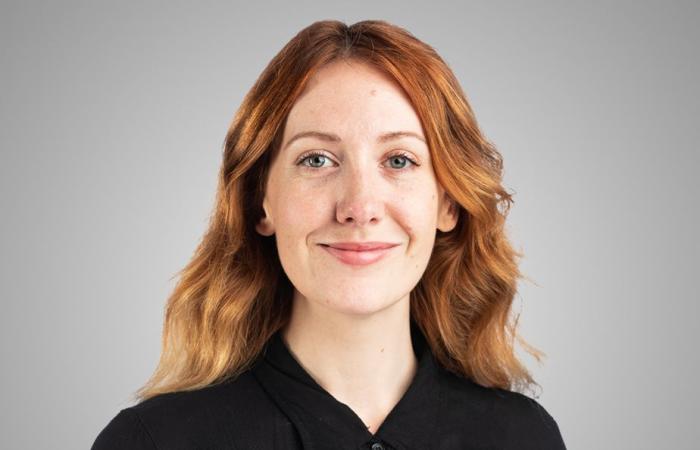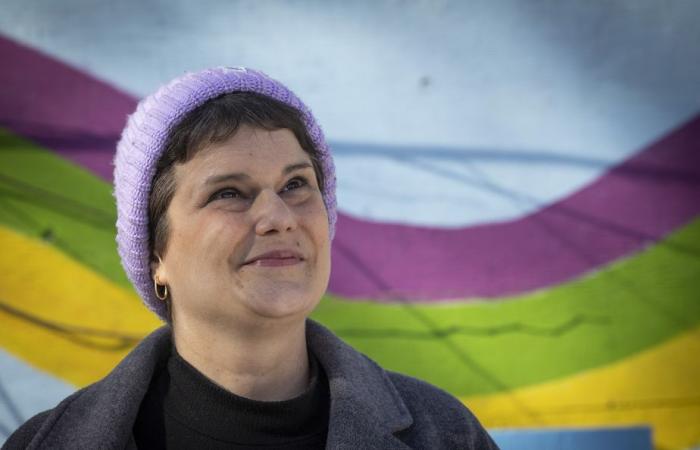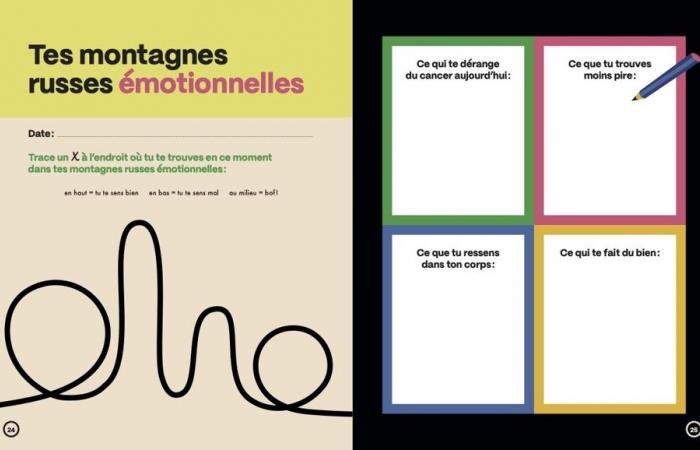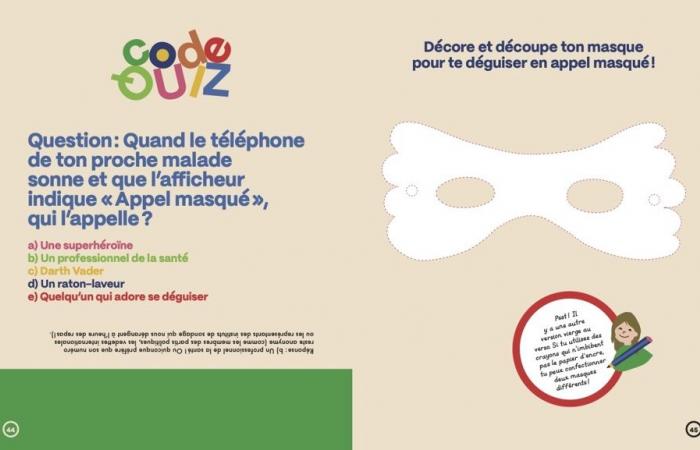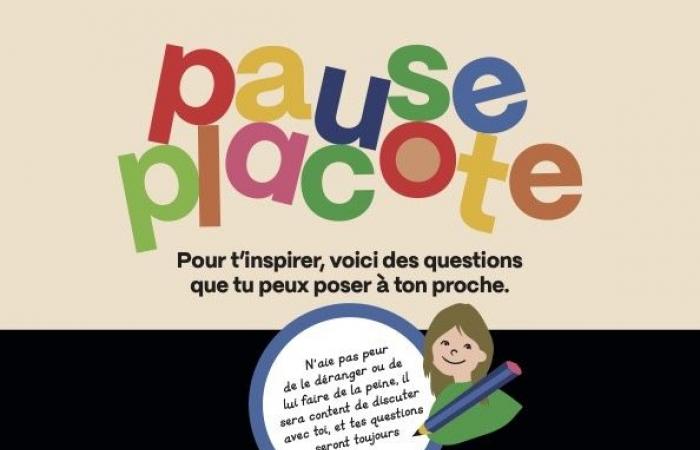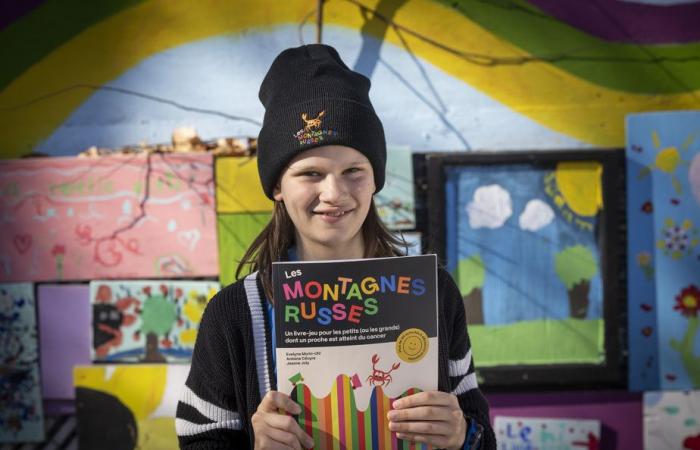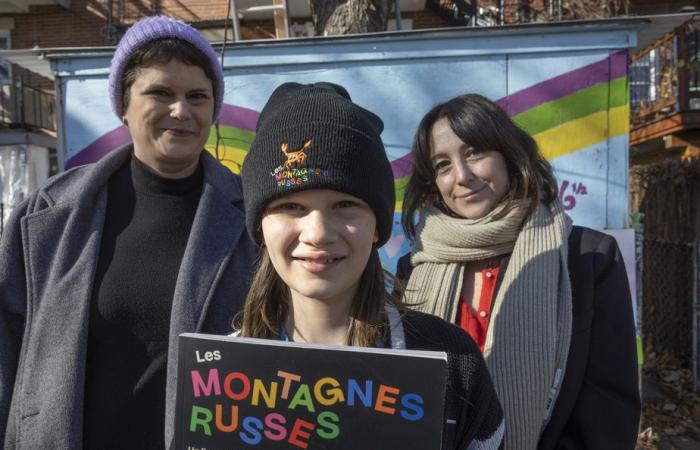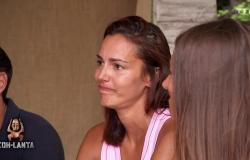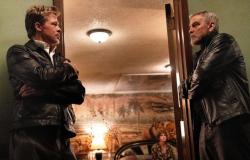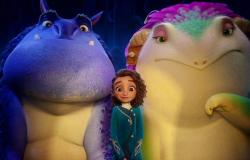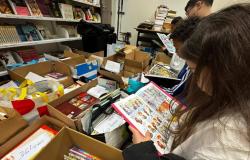I want to make something clear: there is a conflict of interest.
Posted at 3:30 p.m.
Evelyne Morin-Uhl is my friend. The one who has made me laugh for over 12 years. The one I watch the series with Blanche some weekday afternoons. The one living with metastatic breast cancer. The one who, despite difficult treatments and loss of energy, is determined to help families who have to come to grips with the disease.
And if I’m talking to you about Evelyne today, it’s because she co-wrote a book with her 11-year-old son, Antoine Cécyre: The roller coaster – A game book for children (or adults) whose loved one has cancer.
The book, published on November 13, is aimed at children aged 5 to 10 and fills a need in children’s literature. Evelyne Morin-Uhl recognizes the quality of books that address the subject of cancer, but few combine information, reflections and interactivity. She also struggled to find a book in which everyone could relate, regardless of their gender, their role in the family and the type of cancer involved. Above all, she dreamed of a collection that would adopt a tone that is dear to her and Antoine: that of humor.
PHOTO PATRICK SANFAÇON, THE PRESS
Evelyne Morin-Uhl
(Evelyne was a member of the group Moquettes Coquettes and if you listen to the podcast The cancer cardwhich she co-hosted for - OHdio, you will notice that she still laughs at everything, even at her incurable illness… Which doesn’t mean that she doesn’t cry about it either. In his book as under his roof, everything is permitted.)
In The roller coasterchildren can do crosswords that popularize careers in oncology, find their way in a maze to get to the hospital and draw the ugliest object in the gift shop. Throughout the pages, they also discover what a tumor is, who Hippocrates was, what the hospital gown is for and… why certain treatments affect the sick person’s poop (with an invitation to imitate the sound of said farts). person !).
More importantly, chapter by chapter, readers can learn to understand each other.
Excerpts from the book The roller coaster
-
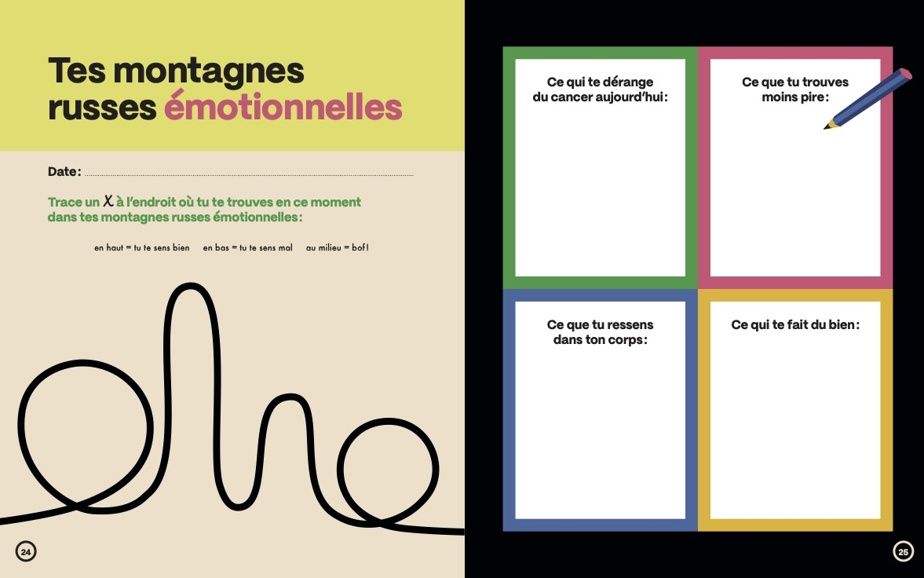
IMAGE PROVIDED BY THE AUTHOR
Some pages taken from the book The roller coaster – A game book for children (or adults) whose loved one has cancer
-
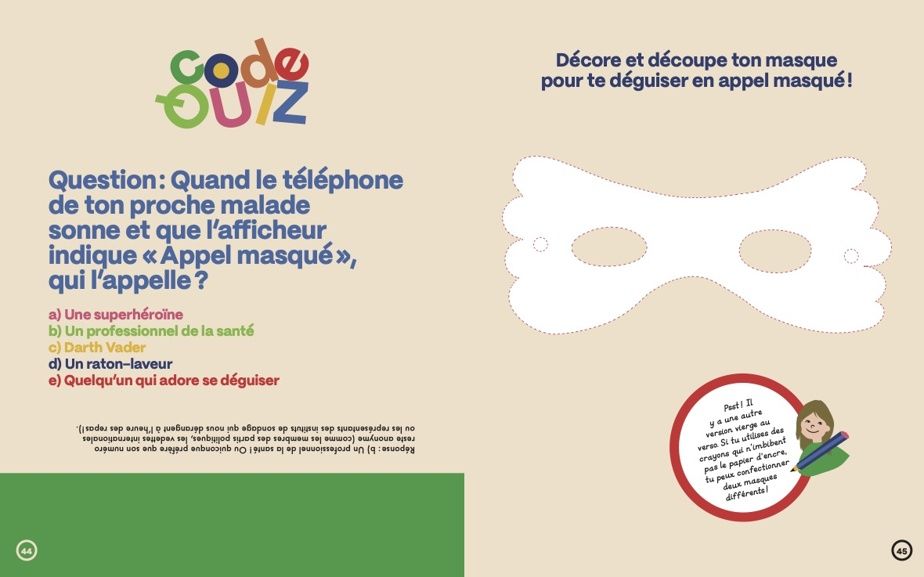
IMAGE PROVIDED BY THE AUTHOR
Some pages taken from the book The roller coaster – A game book for children (or adults) whose loved one has cancer
-
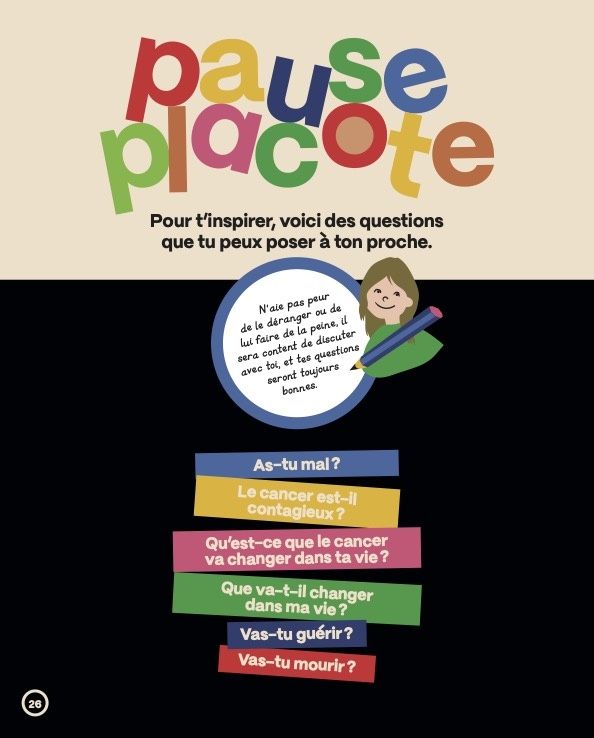
IMAGE PROVIDED BY THE AUTHOR
Some pages taken from the book The roller coaster – A game book for children (or adults) whose loved one has cancer
1/3
I grew up with a father who had terminal cancer and quite honestly, The roller coasterit’s a book that I would have liked to have had, as a child (that’s why I signed the preface; big conflict of interests, I told you!). As a child, I experienced a range of conditions without knowing how to name them or without finding the necessary space to express them.
When we have a sick parent, we may worry about them more than ourselves… We quickly learn to keep quiet about certain things to avoid upsetting the one we adore and fear losing.
We are so afraid of losing them.
In The roller coasterthe little reader is several times invited to situate himself in his “emotional roller coaster”. To help him, he can identify several feelings thanks to the portraits created by Antoine Cécyre (my favorite illustrations in the book!). The faces embody, for example, hope, joy, anger, fear, love, disgust, weariness… Enough to name what is rumbling in his stomach.
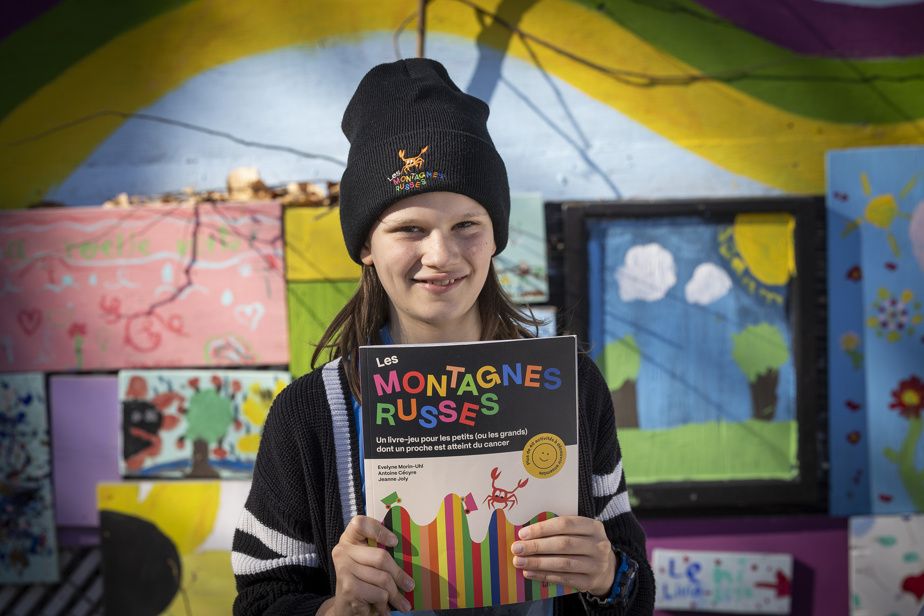
PHOTO PATRICK SANFAÇON, THE PRESS
Antoine Cécyre
The “Pause chattete” pages captivate me with their suggestions of questions to ask a loved one with cancer. In the last section of the book, dedicated to the end of the disease, we find in particular: “If the cancer has gone to sleep, does that mean that you will be cured? » “Is everything going to go back to the way it was?” », “Are you going to die of cancer? » “Stopping treatment and accepting to die of cancer, is that a defeat? »
In 2023, I met a number of specialists for the documentary Grief as a legacy (about young families who have to deal with an incurable illness).
Social worker Josée Masson, from the Deuil jeunesse organization, insisted on the importance of letting the child have his or her story. For her, everyone should have the opportunity to find their place in the family ordeal.
In The roller coasterreaders are invited to create their “wish bucket” (bucket list) by making a list of the activities they absolutely want to do: concocting a mixture of bath salts to soothe their loved one or becoming a water drinker when the person they love falls ill. We move from theory to action.
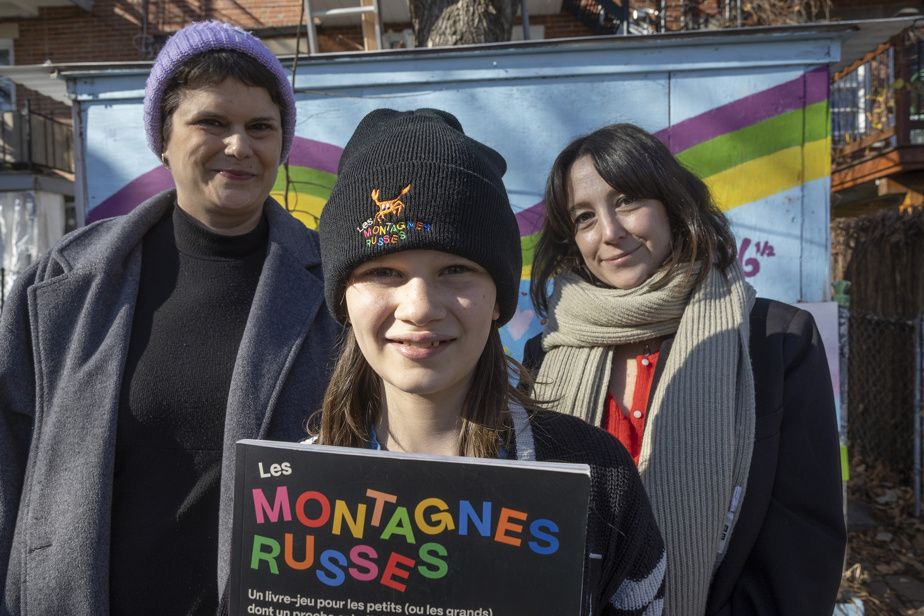
PHOTO PATRICK SANFAÇON, THE PRESS
Evelyne Morin-Uhl (left), her son Antoine Cécyre and the illustrator Jeanne Joly
With this work, Antoine also takes his place in his mother’s illness. He not only co-wrote the texts with Evelyne, but also co-illustrated the pages with artistic director Jeanne Joly (who was able to create a modern, gentle and fun album).
In short, if I commit a conflict of interest today, it is because I firmly believe that the trio Evelyne Morin-Uhl, Antoine Cécyre and Jeanne Joly are doing useful work. It adds an important tool to an arsenal that will never be large enough to support families coping with illness.
Moreover, if you are looking for ammunition, know that the CHU Sainte-Justine Info-Famille Guide offers numerous books for children and adolescents, including fiction The wolf is sickby Brigitte Marleau, and Ostrich Ascendant Cancerby Julie Champagne. In the section of popular works, we find Someone I love has cancer. Mélanie Bouffard, a mother who survived cancer, tells her story by suggesting answers to the questions asked by children who encounter the disease through their loved ones. Notes from oncology psychologist Julie Vadeboncœur punctuate the story. Something to learn about in an embodied way.
Visit the page of Roller coaster
Consult the CHU Sainte-Justine Info-Family Guide
Listen to the podcast show The cancer card

